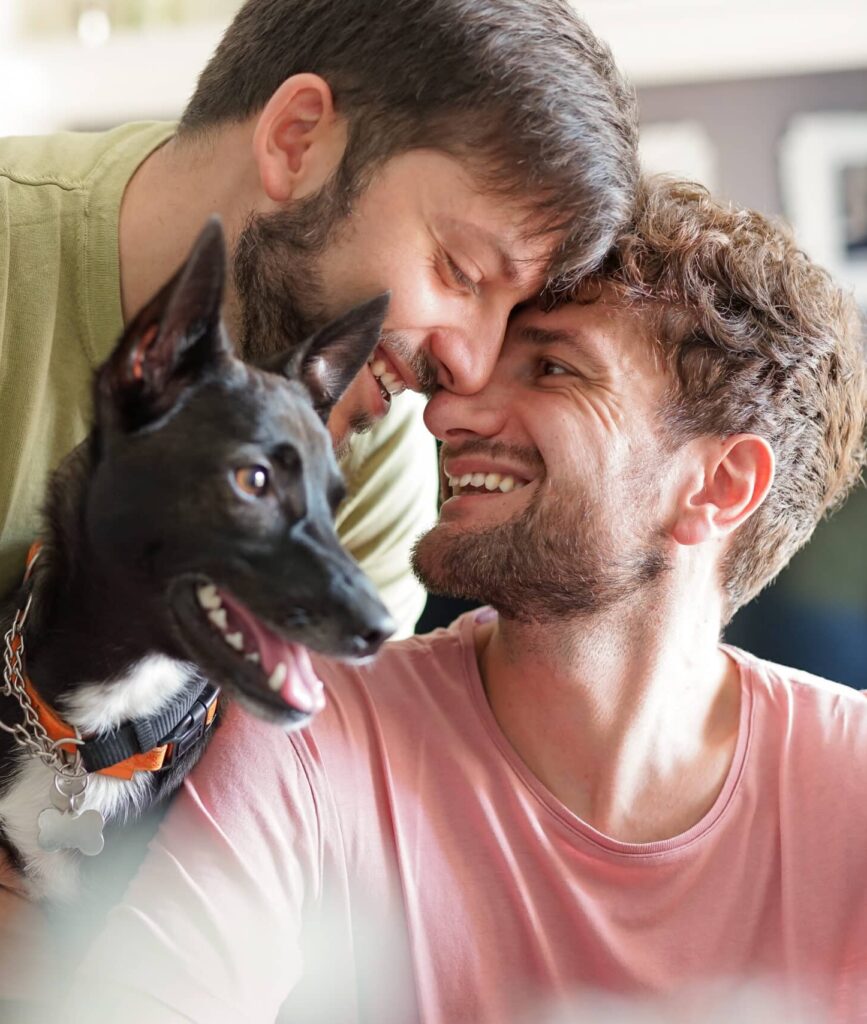As I sit here writing this article, I’m reflecting on my personal experiences with dating, hookups, and utilizing apps such as Grindr to connect with other guys. In no way is this article intended to perpetuate shame or criticize anyone who is actively using a hookup application. As a self-esteem and relationship coach, I like to explore facets of the Gay & Bisexual community to better understand myself, the community, and provide a place where these conversations are possible, but more importantly – safe.
To assume hookups culture is a new phenomena would be inaccurate. Historically, we as Gay & Bisexual men have lived in the shadows due to the societal stigma of our sexual orientation. To say we’ve had to be creative in our exploration and expression of self would be an understatement.
Let’s break it down:
Prior to 1960
Homosexuality was largely criminalized and therefore, men were forced to find ways to express their sexuality. This resulted in an increase of bathhouses, gay bars, and risky meetups via bathroom and cruising locations. Several metropolitan cities had hidden clubs that required a code word to enter.
1969 (Stonewall Riots)
This pivotal movement resulted in LGBTQ visibility, which resulted in more Queer run magazines and the introduction of personal ads for hookups.
1980-1990:
The AIDS epidemic had a profound impact on the casual sex scene within the Gay community. The stigma and public disapproval of homosexual lifestyles resulted in an increase of safe sex practices. The introduction of the internet in the 1990s opened the door to more men connecting in the privacy of their own home.
2000s – Present:
2000s – Present: The level of acceptance has improved exponentially, however, there is still a level of stigma and judgement. Men within the LGBTQ+ community continue to use hookup applications such as Grindr, resulting in an increase of self-esteem and mental health issues.

“Why is it so hard to find a deeper connection?“
– Brian (Client)
A Brief History of Grindr
Grindr, launched on March 25, 2009, by Joel Simkhai. Grindr allowed users to find and connect with others nearby by using GPS technology, thus, facilitating meetups with unprecedented ease.
The app had amassed tens of thousands of users within months, marking the beginning of its rapid ascent in popularity. By 2011, Grindr had over 3 million users spread across 192 countries, solidifying its position as a cornerstone of gay social networking.
Grindr’s Impact on Gay Dating & Mental Health
We’ve all been there, at least I know I have as well as several of my clients. Hookups in the Gay community can feel like a right a passage and can create a pressure to “join in.” Personally, I had only slept with 2 people in my life prior to joining Grindr; needless to say, that number grew quickly in a short period of time. Granted, the purpose of downloading the app was to explore my sexuality, but I didn’t realize how addicting it would become. The need for validation became the object, not the need for connection.
I romanticized the app and its usage, which eventually led to a lot of confusion. I truly believe we ALL want a deeper connection to some degree and Grindr is the vending machine of validation. You can get your craving satisfied but it doesn’t last and therefore, you come back for more. You’re getting a snack, not the whole meal!
So, how does Grindr and hookup culture contribute to your chances of finding genuine love and connection?
For more information, click HERE
1. Mentality of Disposability
By using a hookup app, you will likely be treated as an object for someone else’s pleasure, with little regard for your feelings. This mentality can carry over into other aspects of your life, making it difficult to form meaningful connections with others. It can be difficult to build trust and allow yourself to be vulnerable the longer you objectify yourself and others.
2. Lack of Emotional Intimacy
Many people who engage in hookups do so purely for physical pleasure, without the intention of forming any kind of emotional connection. I’ve said this many times before and will say it AGAIN, there’s nothing wrong with engaging in casual sex, if that is what you and the other person are looking for.
However, having casual sex exclusively can make it difficult to build emotional intimacy with a partner. Emotional intimacy is essential in any long-term relationship since it allows you and your partner to feel safe and supported as you navigate life’s challenges together.
3. Lacking Sense of Personal Identity
In a culture where casual sex is the norm, it can be challenging to determine your own values and priorities when it comes to relationships. You may find yourself feeling confused or uncertain about what you want from a relationship. This can lead to further difficulties when attempting to establish a long-term connection with someone.
The question then becomes, are there are steps that you can take to navigate the challenges of hookup culture and increase your chances of finding a long-term and fulfilling relationship? The short answer is, YES!

Here’s How
1. Establish Clear Boundaries & Communicate Your Needs & Desires with Potential Partners While Using Grindr
Be upfront about what you’re looking for in a relationship, whether that’s something casual or something more serious. Establishing clear boundaries can help to reduce feelings of confusion and uncertainty, allowing you to form connections with partners who are looking for the same thing you are.
2. Take Time to Focus on Personal Growth & Development
By cultivating a sense of personal identity and prioritizing your own needs and desires, you’ll be better equipped to navigate the complexities of relationships. This can include things like engaging in self-care practices or considering coaching if needed.
3. Finding a Long-Term Relationship Takes Time & Patience
While hookup culture may make it seem like everyone is just looking for a quick fling, the reality is that many people are also seeking meaningful connections with others. Be patient, stay true to your values and priorities, and continue to communicate honestly.



Leave a Reply